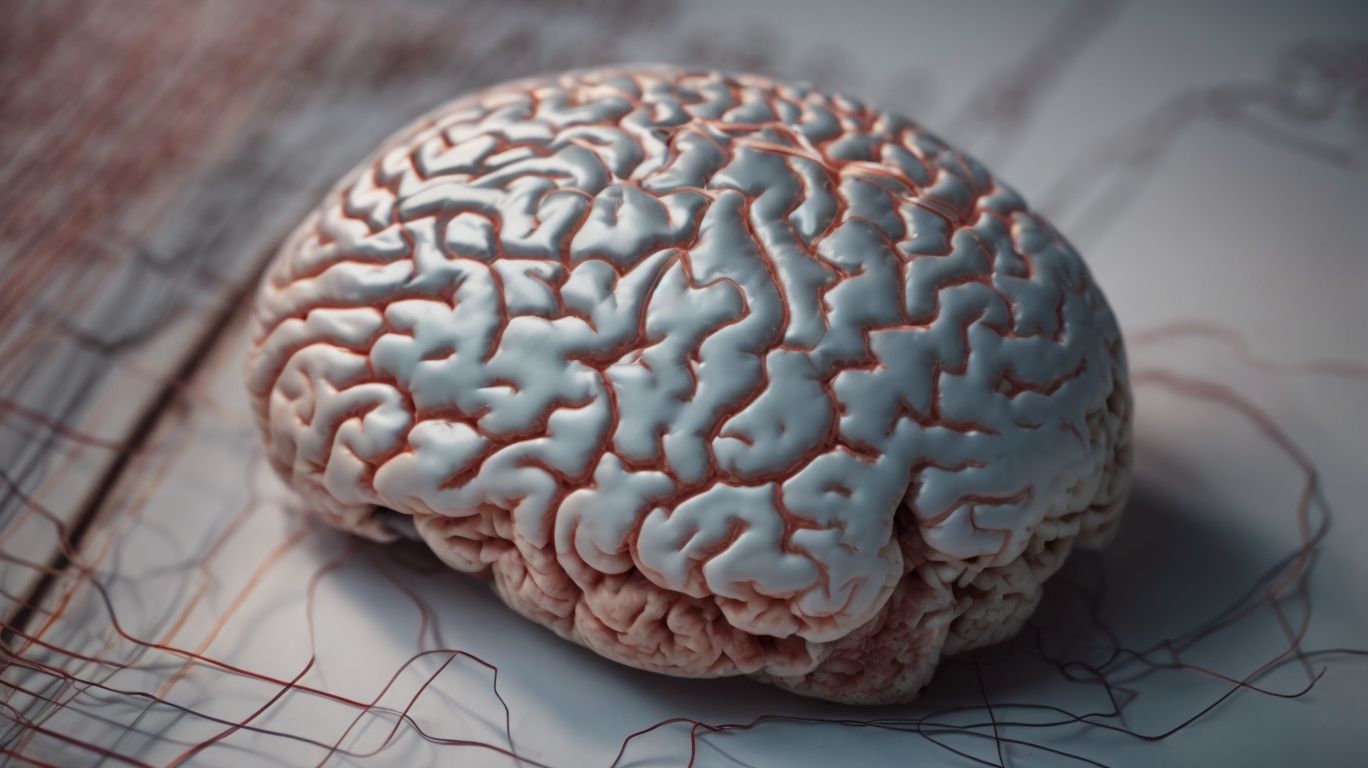Do you ever wonder what exactly lesions are in psychology and how they are studied? In this article, we will explore the different types of lesions, including brain, spinal cord, peripheral nerve, and skin lesions. We will also delve into the effects of lesions on the body, such as motor, sensory, cognitive, and emotional impairments.
We will discuss the implications of lesions in psychology, including understanding brain function, identifying causes and treatments for disorders, and enhancing rehabilitation techniques. Let’s dive into the fascinating world of lesions and their impact on human psychology.
Contents
- 1 What Are Lesions in Psychology?
- 2 How Are Lesions Studied in Psychology?
- 3 What Are the Different Types of Lesions?
- 4 What Are the Effects of Lesions on the Body?
- 5 What Are the Implications of Lesions in Psychology?
- 6 Frequently Asked Questions
- 6.1 What are lesions in psychology and how do they affect individuals?
- 6.2 What are the different types of lesions and their respective implications?
- 6.3 How are lesions studied in psychology and what methods are used?
- 6.4 What are some common effects of lesions on an individual’s behavior?
- 6.5 Can lesions be treated or reversed in psychology?
- 6.6 What are the ethical considerations when studying lesions in psychology?
What Are Lesions in Psychology?
Lesions in psychology refer to areas of damage or abnormality in the brain that can impact cognitive functions and behavior.
These lesions play a crucial role in understanding the intricate relationship between the brain and behavior. By pinpointing specific areas of damage in the brain, researchers can identify how certain cognitive processes are localized and how they give rise to particular behaviors.
Through studying lesions, cognitive neuroscientists can draw connections between brain regions and various mental functions such as language, memory, attention, and decision-making. This deep dive into the effects of lesions provides valuable insights into how different areas of the brain collaborate and function independently to orchestrate our complex behaviors.
How Are Lesions Studied in Psychology?
Researchers study lesions in psychology using methods such as lesion mapping and functional neuroimaging to investigate the effects of brain damage on cognitive functions and behavior.
One common technique used in lesion studies is lesion-symptom mapping. This method involves correlating the location of brain lesions with specific cognitive or behavioral deficits observed in patients. By analyzing the patterns of impairment across different patients with lesions in various brain regions, researchers can identify the functions associated with those specific areas.
Functional magnetic resonance imaging (fMRI) studies provide valuable insights into the neural mechanisms underlying these deficits. Through fMRI, researchers can observe changes in brain activity in response to specific tasks, offering a glimpse into how brain lesions impact cognitive processing.
Patient research involving individuals with focal brain damage helps in understanding the functional consequences of lesions. By assessing the cognitive abilities and behavioral changes in these patients, psychologists can unravel the intricate relationship between brain structure and function.
What Are the Different Types of Lesions?
Lesions can manifest in various forms within the body, including brain lesions, spinal cord lesions, peripheral nerve lesions, and skin lesions, each impacting different aspects of physiological or neurological functions.
Brain lesions, for example, can result from injuries, infections, or diseases affecting the brain tissue directly, causing disruptions in cognitive functions, motor skills, or sensory processing.
Spinal cord lesions, on the other hand, typically occur due to trauma or degenerative conditions, leading to impaired movement, sensation, or organ function depending on the location and severity of the lesion.
- Peripheral nerve lesions often stem from compression, injury, or diseases like neuropathy, leading to numbness, weakness, or pain along the affected nerve pathways.
- Skin lesions encompass a wide range of conditions from eczema to skin cancer, affecting the skin’s appearance, texture, and overall health.
Brain Lesions
Brain lesions are abnormalities in specific brain regions that can disrupt cognitive function and neural activity, often studied using neuroimaging techniques to understand their impact on neurological processes.
These lesions, which can result from various causes such as trauma, infections, tumors, or degenerative diseases, are of significant interest in neuroscience due to their profound effects on an individual’s cognitive abilities and behavior.
Neuroimaging technologies, such as MRI, CT scans, and PET scans, play a crucial role in visualizing and mapping these lesions in the brain, aiding researchers and clinicians in diagnosing and treating neurological disorders.
Lesion studies have provided valuable insights into brain function and dysfunction, helping advance our understanding of the intricate connections between brain structures and cognitive processes.
Spinal Cord Lesions
Spinal cord lesions refer to damage along the spinal cord that can lead to motor impairments and sensory deficits, often studied through lesion mapping to understand their effects on motor functions.
These lesions can vary in severity and location, affecting different motor pathways within the spinal cord. Motor impairments resulting from such lesions can range from weakness to complete paralysis, depending on the extent of damage. Sensory pathways can also be compromised, leading to altered sensations or loss of sensation below the level of the lesion. Understanding the specific impact of these lesions on motor and sensory functions is crucial for developing effective rehabilitation strategies.
Peripheral Nerve Lesions
Peripheral nerve lesions involve damage to nerves outside the brain and spinal cord, leading to sensory impairments that can be studied within the realm of cognitive neuropsychology to understand their cognitive consequences.
When these peripheral nerves are injured, various sensory functions such as touch, temperature perception, and proprioception can be affected, disrupting the flow of neural signals along the intricate neural pathways. Such disruptions can lead to challenges in daily activities requiring precise motor coordination, balance, and spatial awareness.
In the field of cognitive neuropsychology, researchers delve into how these changes in sensory input due to peripheral nerve lesions impact higher cognitive processes, including attention, memory, and problem-solving abilities. By examining how the brain adapts to these sensory deficits, valuable insights are gained into the brain’s plasticity and its ability to reorganize neural networks to compensate for peripheral nerve injuries.
Skin Lesions
Skin lesions involve abnormalities or damage to the skin that may not directly affect cognitive functions but can lead to emotional impairments due to their visible or painful nature, highlighting the psychosocial impact of physical lesions.
These skin abnormalities, whether caused by medical conditions like eczema or psoriasis or due to trauma such as cuts or burns, can trigger a range of emotional responses in individuals. The visibility of these lesions often creates feelings of self-consciousness and may contribute to social anxiety or even feelings of shame. Such psychosocial factors intertwine with the physical discomfort, impacting the overall well-being of an individual. People often grapple with how these skin issues are perceived by others, which can lead to a cycle of negative emotions and reduced self-esteem.
What Are the Effects of Lesions on the Body?
Lesions can have diverse effects on the body, including motor impairments impacting movement, sensory impairments affecting perception, cognitive impairments altering thinking processes, and emotional impairments influencing mood and behavior.
Motor impairments due to lesions can lead to difficulties in coordinating muscle movements, resulting in challenges with walking, grasping objects, or maintaining balance.
Sensory impairments may manifest as disturbances in vision, touch, or proprioception, causing difficulties in processing sensory information accurately.
Cognitive impairments can impact memory, attention, and problem-solving abilities, affecting an individual’s ability to think clearly and make decisions.
Emotional impairments can result in mood swings, impulsivity, or changes in social interactions, leading to challenges in regulating emotions and behaviors.
Motor Impairment
Motor impairment resulting from lesions can disrupt normal brain function and coordination, commonly seen in conditions such as stroke patients where specific brain regions controlling movement are affected.
This disruption in neural pathways can lead to deficits in motor control, affecting the ability to carry out everyday tasks smoothly. Patients may experience difficulties in walking, grasping objects, or even speaking, depending on the location and extent of the lesion.
Rehabilitation programs for stroke patients often focus on enhancing motor skills through targeted exercises and therapies aimed at retraining the brain to compensate for the damaged areas. Understanding the intricacies of motor impairments can help tailor interventions to help individuals regain motor function and improve quality of life.
Sensory Impairment
Sensory impairments from lesions can disrupt brain networks responsible for processing sensory information, often studied through lesion mapping to understand how specific brain regions contribute to sensory functions.
When a lesion occurs in the brain, it can impact the transmission of sensory signals along the intricate sensory pathways. These pathways serve as vital communication channels between different brain regions, aiding in the integration of sensory inputs. Damage to these pathways can lead to disruptions in sensory processing, affecting an individual’s ability to perceive and interpret sensory stimuli accurately. This impairment can manifest in various ways, such as altered pain perception, diminished tactile sensitivity, or impaired proprioception.
Cognitive Impairment
Cognitive impairments arising from lesions can impact various cognitive processes such as memory, attention, and language, prompting detailed lesion studies to unravel the neural basis of cognitive functions.
When a lesion affects the brain, it can disrupt the intricate network responsible for encoding, storing, and retrieving memories. Individuals may struggle to recall past events or form new memories, hindering their daily functioning. Similarly, attention deficits resulting from lesions can lead to difficulties in concentrating, maintaining focus, and switching between tasks.
Lesions in specific brain regions can impair language processing, affecting the ability to comprehend and produce speech. This intricate relationship between lesions and cognitive processes underscores the significance of ongoing research to enhance our understanding of the brain-mind connection.
Emotional Impairment
Lesions can lead to emotional impairments in patients, necessitating neuropsychological screening to assess emotional regulation, social behavior, and psychological well-being in lesion patients.
Emotional impairments associated with lesions can manifest in a variety of ways, impacting not only the individual’s internal state but also their external interactions. Changes in emotional regulation may range from heightened emotional reactivity to blunted affect, making it challenging for lesion patients to navigate everyday social situations.
These alterations can significantly affect their social interactions, leading to misunderstandings, interpersonal conflicts, and feelings of isolation. Such emotional dysregulation can have a profound impact on the psychological functioning of lesion patients, contributing to symptoms of anxiety, depression, or even personality changes.
What Are the Implications of Lesions in Psychology?
The study of lesions in psychology has significant implications for understanding brain function, identifying causes and treatments for neurological disorders, and enhancing rehabilitation techniques for patients with brain injuries.
Lesions play a key role in linking specific cognitive functions to localized brain areas. By studying the impact of lesions on cognitive processes, researchers can uncover crucial insights into how different brain regions contribute to functions like memory, language, and emotion regulation. This knowledge is fundamental not only for diagnosing and treating neurological disorders but also for developing targeted therapeutic interventions that can aid in neuroplasticity and functional recovery post-injury.
Understanding Brain Function and Localization
Lesion studies play a crucial role in elucidating brain function and localization, helping researchers map specific brain regions to cognitive processes and behaviors.
By deliberately inducing damage to specific areas of the brain, researchers can observe changes in behavior and cognitive abilities, allowing them to draw conclusions about the function of those particular regions. For example, lesions in the prefrontal cortex have been linked to decision-making deficits, while damage to the hippocampus can impair memory formation. This targeted approach provides valuable insights into the complex interplay between different brain regions and their contributions to various cognitive functions.
Identifying Causes and Treatments for Disorders
Lesion research aids in identifying the causes and treatments for various neurological disorders by employing methods like lesion-symptom mapping and clinical observations to link lesion locations with specific clinical manifestations.
Through lesion studies, researchers seek to elucidate the intricate relationship between structural brain damage and resulting cognitive, behavioral, or motor deficits. By analyzing how specific brain areas are affected by lesions and correlating these changes with observed symptoms, clinicians can gain valuable insights into the underlying mechanisms of neurological disorders such as stroke, traumatic brain injury, or neurodegenerative conditions.
- Lesion-symptom mapping plays a pivotal role in pinpointing which brain regions are crucial for various functions, enabling the development of targeted interventions tailored to individual patients’ needs.
- Clinical assessments complement lesion studies by providing a comprehensive evaluation of patients’ cognitive, motor, and emotional functioning, aiding in the accurate diagnosis and treatment planning for neurological conditions.
- Therapeutic interventions based on lesion research findings can range from pharmacological treatments targeting specific neural pathways to rehabilitative strategies aimed at enhancing neural plasticity and functional recovery.
Lesion studies not only enhance our understanding of the pathophysiology of neurological disorders but also pave the way for personalized and effective treatments that address the underlying causes of these conditions.
Enhancing Rehabilitation Techniques
Lesion studies offer insights into enhancing rehabilitation techniques for individuals with brain injuries, leveraging statistical power and control groups to assess the effectiveness of different therapeutic interventions.
By utilizing statistical power, researchers can ensure their findings are robust and generalizable, allowing for more confident conclusions to be drawn about the efficacy of specific rehabilitation methods. Control group comparisons also play a critical role, helping to establish causal relationships between interventions and outcomes, while minimizing the impact of confounding variables. This rigorous approach is essential in evidence-based practice, where treatment decisions are guided by the most current and reliable research available.
Frequently Asked Questions
What are lesions in psychology and how do they affect individuals?
Lesions in psychology refer to damage or abnormal changes in the structure or function of certain brain regions. These changes can have significant effects on an individual’s behavior, cognition, and emotion.
What are the different types of lesions and their respective implications?
There are various types of lesions that can occur in the brain, such as traumatic brain injuries, tumors, strokes, and neurodegenerative diseases. Each type of lesion can have different implications on an individual’s psychological functioning.
How are lesions studied in psychology and what methods are used?
Psychologists use various methods to study the effects of lesions on individuals, including brain imaging techniques such as MRI and PET scans, neuropsychological assessments, and case studies of individuals with specific lesions.
What are some common effects of lesions on an individual’s behavior?
The effects of lesions on behavior can vary greatly depending on the location and severity of the lesion. Some common effects include changes in mood, memory, attention, language, motor skills, and decision-making abilities.
Can lesions be treated or reversed in psychology?
In some cases, lesions can be treated or reversed through medical interventions or rehabilitation programs. However, the success of these treatments depends on the type and extent of the lesion.
What are the ethical considerations when studying lesions in psychology?
Studying lesions in psychology raises ethical concerns, as it involves manipulating or damaging a person’s brain. Researchers must ensure that their studies are conducted ethically and with informed consent from participants.



